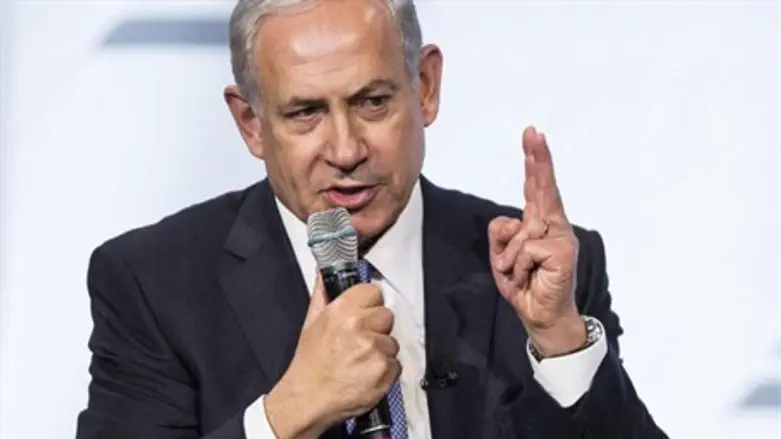
Arutz Sheva has learned that Prime Minister Binyamin Netanyahu clarified on Monday during a Likud faction meeting that Israel will not remove the blockade on Gaza as part of a rapprochement deal with Turkey.
In light of Hamas statements hinting that Israel is considering easing the blockade that is meant to prevent the influx of weapons, Netanyahu told Likud members that "we have been in ongoing contact with Turkey for several months."
"We still don't have understandings and we aren't there for a simple reason: there are topics that interest us, such as Hamas activity, but that's not enough for us, we want to ensure that there won't be any terrorist activity from Turkish territory."
"They (Turkey) argued against the blockade on Gaza and of course we don't intend to change our naval blockade policy," said Netanyahu. "Even though Israel is the country that transfers the (goods for the) existence and rehabilitation of the Gaza Strip, we cannot give up on our security."
Netanyahu's statements come after Yassin Aktay, a senior adviser to the Turkish Prime Minister, gave an interview to a Hamas controlled paper and said Israel had agreed to reduce the pressure on Gaza, although he did not specify how.
One of the Hamas heads, Ahmed Yussuf, also recently said the deal being sealed between Israel and Turkey which would have the Jewish state sell natural gas to Ankara will have an impact on Gaza.
"The Turkish brothers" will not sign an agreement that does not include the "welfare" of Gaza residents, Yussuf told the Palestinian Arab Ma'an News Agency.
The Turkish Daily Sabah likewise reported that Israel is considering the Turkish demand to ease the blockade, but the Israeli government has not referenced the reports at all, with officials saying an ease will not be included in the agreement.
However, diplomatic sources have said that establishing a seaport under Israeli supervision that would allow the import and export of goods is being considered.
Agriculture Minister Uri Ariel (Jewish Home) on Monday openly called to build a Gaza seaport, even though the move was firmly opposed by Israel when Hamas demanded it following Operation Protective Edge in the summer of 2014 due to the serious danger of weapons smuggling. Hamas continually conducts gun-running attempts in disguised fishing boats, smuggling tunnels and other means.
The talk of a rapprochement deal with Turkey comes after ties broke down following the 2010 Mavi Marmara incident, when elite IDF soldiers were forced to board the Turkish Mavi Marmara ship, which ignored repeated warnings to stop its attempt to breach the maritime blockade on Gaza - a blockade that is legal under international law.
The soldiers were brutally attacked by IHH Islamist extremists on board wielding knives and metal bars, and had no choice but to open fire, killing ten of the IHH members on board. After an investigation, Israeli authorities discovered the vessel to be carrying no humanitarian aid, despite the flotilla's claims that it was on a "humanitarian" mission.
Ironically the talk of rapprochement comes even as Russian President Vladimir Putin last Thursday said there will be no reconciliation between him and Turkey, accusing President Recep Tayyip Erdogan of instituting a "creeping Islamization" in the state.
